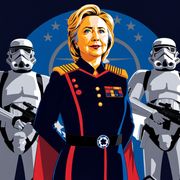|
Admiral Snackbar posted:Interestingly enough, it's not really surprising that Carthage lasted so long, but rather that Rome did. To understand this, it's necessary to be somewhat familiar with common practices in ancient warfare, and how the way the Roman military did things differed from these practices. This is a really interesting thread, Dan Carlin's Hardcore History did three episodes about the Punic Wars, i can recommend them to anyone who is more interested after reading your great description of the events : http://www.dancarlin.com/disp.php/hharchive
|
|
|
|

|
| # ? Apr 25, 2024 16:02 |
|
This is a great thread. What can you tell us about the armies of the Diadochi?
|
|
|
|
Baloogan posted:...IJA's generals were in China from 31 to 41, and with no victory in sight they decided to go after even bigger countries. How dumb is that?... To understand this, we need to talk a bit about the Greater East Asia Co-Prosperity Sphere and the origins of Japan's position as a world power. In 1905, Japan handed Russia its rear end during the Russo-Japanese War. The Battle of Tsushima mentioned in a previous post was part of this war. This represented the first time an Oriental nation had indisputably beaten a European power. Even so, the Western world was loathe to recognize Japan as a regional power, much less a global one, as evidenced by the Washington Naval Conference. As a result, Japan felt at least a little bit insulted. Even so, the Japanese decided to keep the Imperialism ball rolling by siding against Germany in World War I. "What does that matter," you ask, "Germany's in Europe and Japan is in a mystical grotto outside the bounds of the real world. What could Japan possibly do to Germany?" It was important because Germany had significant land holdings in China. At the end of the war, Japan claimed these lands along with those formerly held by the now defunct Russian Empire. The puppet state of Manchukuo was created out of these new holdings. Japan now had a foothold in China, one that it intended to expand. Using the Mukden Incident as an excuse, Japan invaded Manchuria in 1931. Why did they do this? Well, in a way racism was the reason. Japan saw itself as the liberator of Asia, chasing out the Europeans who had colonized the region over the past few centuries. This was all well and good except for the fact that Japan itself lacked enough natural resources to pursue its crusade. Where could they get the necessary ore, rubber, oil, etc.? That's right, China. So, in order to free Asia from European interlopers, Japan needed to become a conqueror itself (not that it really minded such a responsibility). Unfortunately, the going was not quite as easy as the Japanese generals had hoped. One interpretation of the Rape of Nanking is that the Japanese army was essentially venting its frustrations of the Chinese populace. So how did the Japanese get all wrapped up in World War II while it was still working on subduing China? Well, one of the most important European powers in East Asia was Britain, which made them Japan's natural enemy. Britain and the US were allies, however, which made tensions between Japan and the US increase. Knowing that the US was basically the only real threat to Japanese power (since Britain had its hands full elsewhere), Japan figured it had to remove the possiblity of US intervention in its "liberation" scheme. First they tried to do this economically by creating the Greater East Asia Co-Prosperity Sphere. All this was was a thinly veiled attempt to present Japanese-occupied territories as independent nations all working together to strengthen Asia. Nobody was fooled. The US continued to threaten severe economic sanctions that could potentially cripple the Japanese war effort. That being the case, the Japanese high command decided to forcibly remove the United States from the Pacific Rim Power Grabbing Game. To do this, they intended to wipe out the United States' Pacific fleet in one decisive blow - at Pearl Harbor. To be sure, the Japanese had no intention of carrying out an extended war with the US. They meant to carry out a single strike that would prevent the US from ever interfering in Asia. The Japanese did not want to invade the US or anything like that. In their minds, the attack on Pearl Harbor would begin and end the conflict all at once.
|
|
|
|
Thanks for answering my question, I have another quick one if you don't mind. What was the most peaceful period in recorded history?
|
|
|
|
Could you speculate on how, if possible, the British Empire after losing the 13 American colonies developed a unique situation in which they eventually lost their superpower status some years later. How would you approach that subject?
|
|
|
|
If Germany had continued attacking RAF bases instead of bombing English cities, would Operation Sealion have had a decent chance of success?
|
|
|
|
Xenixx posted:Could you speculate on how, if possible, the British Empire after losing the 13 American colonies developed a unique situation in which they eventually lost their superpower status some years later. How would you approach that subject? By "some years later" are you inferring a short or long period of time? Because Pax Brittanica* lasted pretty much until World War I, a period when sea power was paramount and Britain could easily whoop the 2nd and 3rd best navies in the world at the same time. And though they lost the American colonies, they also picked up larger and more profitable ones in the Middle East and Asia. *Tangental answer to the other question about peaceful periods... globally Pax Romana lasted around 250 years, Pax Brittanica lasted about 100.
|
|
|
|
pimpslap posted:By "some years later" are you inferring a short or long period of time? Because Pax Brittanica* lasted pretty much until World War I, a period when sea power was paramount and Britain could easily whoop the 2nd and 3rd best navies in the world at the same time. And though they lost the American colonies, they also picked up larger and more profitable ones in the Middle East and Asia. It is my opinion that losing the 13 colonies eventually led to their eventual decline, if I had to place a scope of time I would likely invalidate my argument. Colonies in the Middle East and Asia that proved more difficult to hold onto, or in some way were reminiscient to the fact that they lost colonies in the Americas to [citizens]. I approached this from the idea that had they not lost a viable foothold in the Americas... Could someone besides me find cause to argue the case?
|
|
|
|
In hindsight, was it a mistake for the Empire to put all its eggs in one basket by constructing the Death Star? Surely such an undertaking cost the Empire a lot of resources which probably could have been better used had they been spread out?
|
|
|
|
Xenixx posted:It is my opinion that losing the 13 colonies eventually led to their eventual decline, if I had to place a scope of time I would likely invalidate my argument. Colonies in the Middle East and Asia that proved more difficult to hold onto, or in some way were reminiscient to the fact that they lost colonies in the Americas to [citizens]. I approached this from the idea that had they not lost a viable foothold in the Americas... Could someone besides me find cause to argue the case? But the Empire continued to expand and prosper for more than a century after the loss of the Americas. I'm just not seeing how holding onto the Americas would have helped the Brits out in, say, India or Africa in the mid-20th century. If anything it would have hastened the decline of the rest of their territory as the yanks would have inevitably gotten restive.
|
|
|
|
Omits-Bagels posted:war. what is it good for? Absolutely nothing
|
|
|
|
I've always idolized Chinggis Khaan for the sheer scope of his conquest, but what was he like as a strategist and tactician? What is your opinion of him?
|
|
|
|
This is kind of an abstract question, but in studying all this bloodshed and death, so much of it being utterly pointless, do you ever get a little disillusioned to it all? I mean, pretty much every field of study has insanely depressing poo poo in it, but your field is specifically geared towards a subject that's basically guaranteed to be insanely depressing poo poo all the time. Do you drink a lot?
|
|
|
|
GET BUCK posted:This is kind of an abstract question, but in studying all this bloodshed and death, so much of it being utterly pointless, do you ever get a little disillusioned to it all? I mean, pretty much every field of study has insanely depressing poo poo in it, but your field is specifically geared towards a subject that's basically guaranteed to be insanely depressing poo poo all the time. Do you drink a lot? "only the dead have seen the end of war". loving this thread.
|
|
|
|
Admiral Snackbar posted:What really sucked was that Britain and France had guaranteed Polish sovereignty and then reneged on their promise. If I was Polish I'd still be a little upset over that one. Huh? Britain and France did immediately declare war on Germany following the invasion of Poland, as promised, but there was only so much they could do; the French amy wasn't geared towards the offensive and even if most of the German army was being busy in the East it wasn't like the western frontier was left unguarded. It was more of an empty promise than a reneged promise.
|
|
|
|
Mr Havafap posted:Huh? Why didn't France and Britain declare war on the USSR?
|
|
|
|
Iron Squid posted:In hindsight, was it a mistake for the Empire to put all its eggs in one basket by constructing the Death Star? Surely such an undertaking cost the Empire a lot of resources which probably could have been better used had they been spread out? This is clearly the case, but the situation is not as simple as it seems on the surface. While it is easy to blame the Empire itself for what looks to be a gross misallocation of resources, the truth is that there were two independent problems with the Death Star Project, only one of which was the amount of resources devoted to construction. The other problem was the approach taken in deploying the two Fully Armed and Operational Battle Stations. In addressing the first problem, some brief historiography is necessary. In the immediate aftermath of the disastrous events at Yavin IV and Endor it was widely accepted that the Empire itself was responsible for the decision to build these weapons and, in doing so, subject the economies of numerous star systems to unbearable economic stress. While this blame at first seems reasonable, it must be remembered that such accusations could very likely have been propagated by the group of freedom fighters led by Luke Skywalker. Such a situation would not be unexpected, as any propoganda tactics that would serve to discredit the Imperial government would no doubt have been used by these Rebel Scum. Indeed, over the last 5 to 10 years new documents have come to light suggesting that the initial work on the super weapons was already well underway during the Republic's waning years. It should be remembered that the former was the very same governmental body that Skywalker and his cohorts were striving to reincorporate; therefore, he and his Rebel Friends would have every reason to divert attention away from the Republic's responsibility and place the blame squarely on the Empire's shoulders. Nor should it be overlooked that noted insurgent leader Obi Wan Kenobi, as well as Skywalker's own father, were high ranking officers in the employ of the Republic, and may themselves have had some involvement with the Death Star project. Some have argued that although the Death Star's planning and initial construction probably began during the late years of the Republic, the government itself should not be held responsible since there were numerous quasi-independent political factions operating separately from the legitimate government at the time. However, given the size and scope of the project, the Senate, if not directly responsible for the project, must have either ignored evidence of its existence, in which case they were grossly negligent, or known of its existence and given tacit consent, in which case they were complicit. Either way, it is clear that the Republican government, not the Empire itself, was responsible for either permitting or ordering the initial devotion of large quantities of capital and material to a project of questionable utility. Further adding to the evidence of Republican responsiblity is the rather curious lack of attention paid to certain common-sense safety measures on the stations, such as adequate catwalk railings or sufficiently well protected exhaust ports. Such oversights are clear indications of design-by-committee, and all too representative of a stale democratic government's way of doing things. Indeed, it was precisely the propensity of the Senate to allow such goings-on that prompted Chancellor Palpatine to assume dictatorial powers to try and straighten out the whole mess. While the Empire was obviously not immediately responsible for the initiation of the project, it did allow construction to continue through to completion. Why was this? There are likely two reasons. First, the transition from Republican to Imperial government structures was not immediate. It was, in fact, not until after the first Death Star had been completed that the last remnants of the Old Republic had been swept away. The length of time necessary for this change was attributed to the fact that mid-level members of government continually insisted that the local bureaucracy was necessary to maintain control. Indeed, transcripts from high-level military planning sessions suggest that even some military leaders felt this way, although the sentiment was probably not too widespread. Thus, during this period of flux, large bureaucratic programs such as the Death Star would have been very difficult to simply terminate since Emperor Palpatine had his hands full with innumerable similar problems. The second reason would be that, given the advanced state of the project at the time that Palpatine assumed the principate, it may have been more expensive to deconstruct the stations than to complete them. Although records from the period are incomplete, it is clear from the close proximity in time between the battles of Yavin and Endor that the second Death Star must have been under construction before the first was even deployed. Therefore, its construction was also likely beyond the point of no return, so to speak. The second problem, that of the Death Stars' deployment, is more directly attributable to the Imperial Navy and even the Emperor himself. That the Death Star design was out of place in the Imperial Navy is something of an understatement. Although the Navy certainly had a penchant for gigantism, it never strayed too far from the idea that their weapons of war should be simple and easily mass produced. The TIE series of fighters, interceptors, and bombers, for example, while they did not necessarily excel at local space superiority, were sufficiently ubiquitous to allow the Empire to at least disrupt, if not necessarily defeat, many Rebel undertakings. Considering the limited resources available to the Pitiful Little Band, had the Empire remained true to this strategy of gradual attrition it would significantly have increased its chances of ultimate victory. Likewise, the Imperial II class of Star Destroyer was quite capable of causing problems for even a moderately sized Rebel task force. The sudden shift, then, from widespread attritional strategy to focused annihilation is rather confusing. This is particularly the case when one considers the fact that by tightening their grip upon one star system at a time, the Imperial Navy would most likely have let many others slip through their fingers. While the fundamental reasons for the Empire's shift in strategy remain a mystery, it is still clear that the Emperor and his officers made some rather naive mistakes in their use of the Death Stars. In the first case, the Death Star's attack on the Rebel Base at Yavin IV suffered from an unforgivable dirth of battlefield reconnaissance. Had even the most basic survey of the Yavin system been made prior to the Death Star's arrival, its approach could have been calculated to come from the same side of Yavin IV as the Rebel-held moon. Instead, the lack of reconnaissance caused the Death Star to approach from the opposite side, thus lengthening the time required to position itself properly, and ultimately providing the Rebels with a perfect opportunity to drive an attack home. In the second case, the Emperor himself made a critical error by personally overseeing the final stages of construction. Apparently unfamiliar with the dangers inherent in exposing himself to attack, Palpatine insisted on being present on the occasion of his ultimate triumph, despite objections from his closest advisors. One witness even describes the the occasion of the Emperor's announcement, whereupon Lord Vader was said to have responded, "I have a baaad feeling about this." In any case, the Emperor's overconfidence was his undoing.
|
|
|
|
Awesome. How amazing was the Albanian national hero, Skender Beu, at driving back the Turks?
|
|
|
|
I clearly need to brush up on my Star Wars history. For anyone interested in reading more about Hannibal and friends, I very much recommend reading the Roman historian Livy's account of the Second Punic War. You should be able to find it in the history section of your bookstore. The version I read was translated by Aubrey de Selincourt and published by Penguin Classics under the title "The War with Hannibal." It is very action packed with battles in Italy, Sicily, Iberia, and North Africa including favorites like Cannae and Zama. Publius Cornelius Scipio, who would later go on to earn the title Africanus, is shown rising through the ranks, never losing a battle while in command, and becoming Rome's hero. Hannibal is shown dicking around in Italy for the next 20 years and squandering the victory at Cannae. Really interesting stories of Rome's other consuls and dictators and how they contributed to the war effort. The Romans even had to deal with the possibility of Macedon entering the war on the Carthaginian side. The Second Punic War was truly epic and Livy covers just about everything you will ever hear about it. As Admiral Snackbar mentioned, you will be inspired by Rome's inability to accept defeat. I've also read "Scipio Africanus: Greater than Napoleon" by B.H. Liddell Hart. It has been a few years but I remember it to be very interesting. Pretty much focuses on Scipio and his role during the war with Hannibal. "The Campaigns of Alexander", written by the historian Arrian, is a great read as well. Yep, I'm a sucker for ancient military history.
|
|
|
|
How has the modern dissemination of culture and information affected more psychologically effective weapons? Show weapons. Like say, Power armor or "scifi" weapons? I imagine dropping some space marine equivalents into a small unit engagement will scare most enemies into retreat. Am I correct on that assumption? Things like explosive rounds and plasma weaponry. We can make them, but logistically they are a pain and aren't as effective as popular culture make them sound.
|
|
|
|
Spartan421 posted:I've also read "Scipio Africanus: Greater than Napoleon" by B.H. Liddell Hart. It has been a few years but I remember it to be very interesting. Pretty much focuses on Scipio and his role during the war with Hannibal. Came here to post how shocked I was the OP didn't praise Scipio Africanus AT loving ALL. This book made me realize how much of a badass Scipio Africanus is. I can't write near as good as the OP or know near as much but I'll just sum up one tiny awesome fact about him with these plagarized sentences from wikipedia, heres how Scipio's Campaign in Africa against Hannibal starts "In the following year (205 BC), Scipio was unanimously elected to the consulship at the age of 31. Scipio wanted to go to Africa, but his jealous enemies in the Roman senate only allowed him to go as far as Sicily and did not grant him an army. Nevertheless, Scipio raised and trained a volunteer army while in Sicily." and this describes his return after his undefeated African Campaign against Hannibal "Scipio was welcomed back to Rome in triumph with the agnomen of Africanus. He refused the many further honours which the people would have thrust upon him such as Consul for life and Dictator. In the year 199 BC, Scipio was elected Censor and for some years afterwards he lived quietly and took no part in politics." Ya he was badass as gently caress.
|
|
|
|
|
Is there any way the Celts could have beaten off the Romans? How did the military of the various Gallic and Brythonic cultures measure up? Obviously they lost but according to the Romans the Celts were just cavemen, which we know isn't the case. The Celts were more advanced than many realize (i think they even had towns and roads, albeit unpaved), so I like to think that if they had been more unified they maybe could've prevented the Romans from conquering Gaul and history would be different. Also, the Germanic tribes. How come, when the Western Roman Empire fell, Western Europe had such abysmal armies? The Germanic tribes were making a pretty decent name for themselves, militarily, during the latter days of the Roman Empire. But then the Empire falls and the respective kingdoms of the Visigoths, Ostrogoths, Franks, and Anglo-Saxons are completely primitive. It seems like the Muslims had no trouble conquering Hispania, and the Anglo-Saxons and Franks were pretty much at the mercy of the Vikings, who were the only ones in that part of the world who seemed to have any kind of decent military. Finally, the Vikings themselves. What is your assessment of them overall, militarily?
|
|
|
|
OP, this is a great thread. My question isn't really about history, but since you mentioned RMAs... what do you think about the future role of information warfare in state vs state conflict? I find the whole idea fascinating, and I'd love to get an inside look at how it is being treated by the US, China, Europe etc. at the moment, in terms of development of doctrine and capability. Does anyone have any idea how things will play out in the coming decades?
|
|
|
|
Xenixx posted:Could you speculate on how, if possible, the British Empire after losing the 13 American colonies developed a unique situation in which they eventually lost their superpower status some years later. How would you approach that subject? The British Empire consisted of India and other bits. The loss of the 13 American colonies happened before there even was a proper British Empire.
|
|
|
|
Admiral Snackbar posted:<snip> 5
|
|
|
|
I hope that Death Star post didn't scare people away - I didn't really mean it as one of these, but rather as a satirical example of how much of history is simply interpretation based on incomplete facts. We should all keep this in mind if ever we hear someone talking about "historical fact." History isn't fact, it's interpreting facts. Anyway, on with the show:Dantu posted:Have you read "The Blitzkrieg Myth", if so what did you think of it? Adams' book, The Best War Ever, discusses Americans' group memory of World War II and compares it to fact. For example, Americans think the war was fought for freedom and racial equality, but the US military was still a segregated organization. We tend to think of GI's as young, honest, pure boys fighting for good old fashioned American values, yet in the Italian campaign cases of venereal disease outnumbered combat injuries. In addition, many of today's social and economic problems have their roots in the war years, as a huge proportion of the young adult male population was shipped off to fight overseas. In short, as Adams writes, "When nostalgia drives us to depict war as a golden age in our cultural development...we trivialize the event by slighting the suffering that took place. And we lose sight of the fact that war is inherently destructive..." Those of us in the US should think about this the next time we hear politicians waxing poetic about the "Greatest Generation." meatbag posted:Do you think if the Allies had pressed their advantage in the Battles of Narvik and destroyed the German troops in Northern Norway, instead of pulling back in order to lose in France, would it have made any difference in the larger picture of WW2? A. Continue straight on into Germany or B. Stabilize the situation on the French-German border and then return to Norway. Obviously, both these possibilities assume the requisite victory in Fance, which didn't materialize for numerous reasons. Namarrgon posted:have you read The Art of War? If so, any thoughts on that? I assume it is a dandy book if you're a medieval warlord but that's pretty much it. Admiral Snackbar fucked around with this message at 20:58 on May 1, 2010 |
|
|
|
Speaking of books, I'm just about finished reading Sherman's Memoirs, which I found to be an excellent war biography. What would be some similar books that you might recommend?
|
|
|
|
How would you win Iraq and Afghanistan if you were in charge?
|
|
|
INTJ Mastermind posted:How would you win Iraq and Afghanistan if you were in charge? Is glassing them an option?
|
|
|
|
|
Namarrgon posted:In fairness, I also read that he probably said "Kratistos", which is the name of one of his generals as opposed to "Kratisto", which translates to "To the strongest". Apparently Kratistos wasn't around so the generals may have decided to mishear it. There is no differentiation in the Greek, since he was asked to whom the empire should go, and he would have used the dative (κρατίστῳ), meaning that there would be no way to differentiate between a man named Kratistos and the superlative adjective. quote:From this example, it is clear that ancient battles were not really fought with the purpose of annihilating the enemy. Rather, a single limited engagement was fought as an almost symbolic action in order to decide a political matter. Whoever won the single encounter won the argument. The end. At Thyrea, only the vague nature of the original fight's finale caused the larger armies to clash. Had the Argives killed the last remaining Spartan, there would have been no doubt, and likely no larger battle. That's how things worked for hundreds of years in the Northern Mediterranean, including both Greece and Italy. Except for Rome. Rome wouldn't accept defeat, opting instead to keep raising new armies until the enemy gave up. That's what happened to Pyrrhus of Epirus when he tried to conquer Italy in the early 3rd Century BC. This unusual capacity to keep taking punishment is what allowed the Romans to ultimately defeat one of the greatest tacticians in history, namely Hannibal Barca. That, and the fact that Hannibal was a really crappy strategist. As one of his lieutenants remarked, Hannibal knew how to win a victory, but not what to do with it. This is oversimplifying things quite a bit on the Greek end. The hoplite encounter may have been the tried tested and true method of resolving disputes between poleis in the heyday of the hoplite (i.e. until the Peloponnesian war), but there was a huge amount of development between that time and the advent of Rome. The militaries of larger entities like leagues and especially the Hellenistic kings totally changed the face of warfare in the eastern Mediterranean. It wasn't that Rome "wouldn't accept defeat" and Greeks would, but rather a number of factors, the major one being that Rome had absolutely enormous reservoirs of manpower to draw on which the Hellenistic kingdoms did not. quote:Is there any way the Celts could have beaten off the Romans? How did the military of the various Gallic and Brythonic cultures measure up? Obviously they lost but according to the Romans the Celts were just cavemen, which we know isn't the case. The Celts were more advanced than many realize (i think they even had towns and roads, albeit unpaved), so I like to think that if they had been more unified they maybe could've prevented the Romans from conquering Gaul and history would be different. There's pretty much no way that the Celts could have defeated the Romans because of their societal structure. They were tribal, which meant that Celtic leaders were chieftains, and their armies basically consisted of retainers. Only when leaders, like Boudicca, could muster unified forces in the face of Roman military power did they have any chance of opposing Roman rule, but even then they didn't pose any serious threat to Roman rule on a grand scale. quote:This is a great thread. If the OP doesn't mind, I would be happy to contribute. I study the military history of the Hellenistic period (basically after Alexander but before Augustus).
|
|
|
|
MeinPanzer posted:good stuff Please! I would love to read your contributions. That particular subject is one I'm very interested in but it is certainly not my forte. How did you introduce yourself to this field?
|
|
|
|
Couple questions... 1. I heard some French people like to argue that Napoleon was simply trying to accomplish what the EU is doing now. No one really seems to look at him as a bad guy or monster, though. 2. When anyone watches any Revolutionary war type movie and such they just think "Did they think these battle tactics were effective and those red coats?" Throughout elementary and middle school we're always taught about the guerrilla tactics we used and it's how we won the war, etc. I actually remember hearing this A LOT. Because you know. America, gently caress yeah, and all that. But obviously the worlds most powerful military was doing it for a reason? 3. Stemming from that I also like to hear the other side of stories. You never hear about the Nazi/German conquest, victories, and Americas embarrassments and mistakes throughout WWI and WWI. Because it's unpatriotic, or something. I guess I'm wondering about the above in all the major wars we're preached about through history classes. The revolutionary war, civil war, world wars, Vietnam, Korean war. Actually we never learned much of anything about the Korean war. 4. Were we ever badly defeated by the Native Americans? You always just hear about all the pillaging and slaughtering we did but surely there were some battles that we lost. Granted, they didn't have the technology but some of them were well trained warriors. 5. Also having spent a decent amount of time in Portugal and Brazil I'm curious about their history and have great interest in their culture/history. Mostly Portugal's as Brazil's isn't too long. I mean. This small little country was a world power and kicking rear end and taking names. Then it's big brother Spain slapped it around and it just went on a rapid decline leading to it being one of the more "poor" (and I use that world loosely) Western European countries. At least when comparing it to the neighbors to the East. A lot of people there were just quite bitter as to what they had become and how they had "nothing" and how poor they all were. Plus there was the whole dictator ship. But you never hear about any of their battles. Usually it's them just showing up to a place and enslaving the natives and perhaps raping them. I don't know anything about their military conquest and major wars they had. Aside from Napoleon invading and the king running off to Brazil. I'd actually like info on that as well. Then when Angola had that civil war after it broke off from Portugal's rule and they went and stepped in. This is getting long. I guess I'm asking about any and all of Portugal's Military history. You hear about the Brits and their conquest and such. It seems Portugal was pretty much doing the same thing as the British whilst just splitting the world between themselves. I also think Britain and Portugal have the longest lasting military ally? 6. What are some of the bigger wars or battles that had a huge change in the course of history that we may not learn too much about? 7. Was the whole beach invasion on the WWII d-day really the only option for what we wanted to accomplish? I know I've heard the battleships were shelling the coast for a long time but where were the planes and such? Was there too much anti-air set up? I guess what we see in movies just makes you wonder if there as another way of going about it. I'll definitely think of more questions but that'll be it for now. Also, if you don't already know about it. I think you'd get a kick out of this. http://en.wikipedia.org/wiki/Battle_of_Kar%C3%A1nsebes Nostalgia4Dogges fucked around with this message at 23:20 on May 1, 2010 |
|
|
|
Christoff posted:
I went to school on air force bases until 6th grade, and we covered all that stuff. Good and bad. I didn't have another decent history class until high school (a normal US civilian-run school), but again, we covered plenty of it.
|
|
|
|
Admiral Snackbar posted:Please! I would love to read your contributions. That particular subject is one I'm very interested in but it is certainly not my forte. How did you introduce yourself to this field? If you have any particular questions on the subject, ask away. I began to get into it mainly through a general interest in military history, and then I began studying ancient history in general. From there my interest in the period was only cemented when I realized that there was a huge amount of evidence out there that remains to be studied because the Hellenistic period is kind of a neglected historical era.
|
|
|
|
INTJ Mastermind posted:How would you win Iraq and Afghanistan if you were in charge? To be fair, the war is virtually already won, so the difficulty of winning it now is very different from where it was several years ago. But generally speaking, the solution would have been to increase the troop strength. At its height, Multi-National Force Iraq composed only about 200,000 troops in the field, of which 150,000 were Americans (this figure doesn't include the Iraqi Police or Iraqi Army units for a variety of reasons). With Iraq having an area of 430,000 sq mi, and a population of more than 30 million, this effectively means that each soldier was reasonable for more than two square miles of territory and 150 people. Even with all the technology available, that is a big task. During the Civil War, the Union used at least three times as many troops in the field to quell a rebellious populace of only four million. When McClellan attacked Richmond, VA in the Peninsula campaign, he had nearly 150,000 troops in his army alone. There are countless other examples of occupations which used many more troops than were used in the occupation of Iraq. I expect that Snackbar will probably focus more on the lack of political objectives contributing to the lack of military success (he mentioned something similar earlier about the idiocy of declaring a war on terror) but in pure military terms the central problem was not in the strategy on the ground but in the logistical needs. The eventual success came from building up the Iraqi military forces until they were large enough to occupy the country - but it was a strategy borne of need because it was very much putting the cart before the horse.
|
|
|
|
Godholio posted:I went to school on air force bases until 6th grade, and we covered all that stuff. Good and bad. I didn't have another decent history class until high school (a normal US civilian-run school), but again, we covered plenty of it. All I learned is how we came in at the last minute and saved the world in the WWI and WWII. And that Vietnam sucked but we did good and didn't technically lose. Plus we were assholes to the Native Americans and African Americans. Christopher Columbus showered the Natives with food, love, and other resources. They had a grand ol' time. Maybe a bit about the Civil and Revolutionary war (In our favor, of course) but that about sums up everything I learned about throughout History class. -edit - Another question. Since apparently the Civil war was all about freeing the slaves. What was it really about? I know most every country suffers from a Civil war but it's still a bit silly that America had it's Civil war about a 100 years after the Revolutionary. But I guess in all actuality that's a really long time. But then again not so much when thinking about how long other countries had been around and how relatively new America was. Nostalgia4Dogges fucked around with this message at 00:02 on May 2, 2010 |
|
|
|
Well, since no one's asked - what do you think about the validity of applying cultural analysis to warfare? My main exposure to this field is on the academic side through Ken Pollack's book on Arab militaries (http://www.amazon.com/Arabs-War-Military-Effectiveness-1948-1991/dp/0803287836/ref=sr_1_1?ie=UTF8&s=books&qid=1272757041&sr=8-1) and stuff by Victor Davis Hanson before he went and joined the wingnut society. It is an interesting hypothesis; that cultural and societal norms can play a big role in determining how warfare is waged. However my feeling thus far is that the field is still in its infancy and there is a surprising lack of rigor in some of the papers out there.
|
|
|
|
JackBoCracken posted:What if you've got no intention of winning an offensive war? I think this is as good a time as any to take a quick dip into the pool of thought generated by one Carl Philipp Gottlieb von Clausewitz. Clausewitz was a Prussian army officer who lived during the time of the Napoleonic wars, eventually rising through the ranks to become a Major-General. Clausewitz witnessed first-hand the defeat of the lauded Prussian army by Napoleon at the battle of Jena-Auerstadt, and resolved thereafter to understand the true nature of war. Whereas other theorists, such as Sun Tsu and Machiavelli, had written treatises on warfare, their tomes were basically intended to be instructional. A good leader does this as opposed to that. If you always make sure your shoelaces are tied, you'll be less likely to trip. That sort of stuff. Clausewitz didn't want to rehash these same old aphorisms, which, not insignificantly, tend to age badly. Instead, Clausewitz endeavored to study war itself, not its practice. He wanted to figure out what made war tick. Tellingly, while Sun Tsu and Machiavelli's works are both titled The Art of War, Clausewitz's book is simply On War. It is a study, not an instruction booklet. It describes what Clausewitz refers to as "universally valid" knowledge of war. A word of warning here - Clausewitz approached his subject by using the method of the Hegelian Dialectic, which is not always the best thing when it comes to readability. For those who are not familiar with this, an idea is proposed - the Thesis. The Thesis is assumed to be incomplete, and allows a valid, yet opposite proposition - the Antithesis. The tension between these two opposite, yet coexisting propositions is resolved by the discovery of a Synthesis, or a method by which the Thesis turns into the Antithesis. For example, if I propose the idea of absolute vacuum, or for our purposes, NonBeing as a Thesis, the Antithesis would be Being. How can NonBeing be transmuted into Being? by Becoming, which constitues the Synthesis of these ideas. The subtleties of this method have led to many erroneous interpretations of Clausewitz, whereby someone will simply take a Clausewitzian Thesis as being valid in and of itself. This is a gross error, for the Thesis, its Antithesis, and their Synthesis form a complete system, no one or two parts of which can exist independently of the others. Perhaps the most salient example of this in Clausewitz is his Thesis that "War is nothing but a duel on a larger scale." While Clausewitz does in fact assert this, he also asserts its Antithesis, "War is the extension of politics by other means." How can he make both these statements without contradicting himself? Because both ideas are true, but incomplete. To complete his conception of war, he arrived at a Synthesis: In both cases, war consists of what Clausewitz called "the wonderful trinity," Violence, Purpose, and Effort. He therefore defined War as, "an act of violence to force an opponent to fulfill our will." In arranging his work, Clausewitz relied on the relationship between Purpose (Zweck) and Means (Mittel). The entire book is organized this way - after defining and explaining War in the first two sections, he proceeds to Strategy, which is the means by which War's purposes are fulfilled. Next, Engagements, by which Strategy is fulfilled; the Armed Forces, which are the means by which Engagements are won. Next, Defense and Attack, the two fundamental means by which Armed Forces carry out Engagements. Finally, Clausewitz presents The Plan of War, a practical framework describing two fundamentally different forms that war may assume, depending on whether the aim is the complete overthrow of the enemy, or more limited objectives. This introduction is barely even scratching the surface of Clausewitz' analysis, but I won't belabor it any further, especially since I can't really do it justice. Indeed, I must give full credit to the writings of Antulio J. Echevarria II which are liberally paraphrased in this brief synopsis, as his work is very illuminating on the subject of Clausewitz. If you Google his name, you can find several very interesting papers that he has written for the Strategic Studies Institute. I do urge you to do so if you find the philosophies and theories of war at all interesting. So, on to Attack and Defense. Clausewitz proposed that Defense was actually the stronger mode of warfare, which was contrary to prevailing wisdom of the time (in fact, the prevailing wisdom of most times). He arrived at this conclusion by logical means. First, he wondered why, if attack was stronger, would defense exist at all? Since it obviously does exist, it must provide some advantage. The advantage of Defense, he reasoned, must lie with the side that does not possess the strength for attack. If Defense allows an opponent with weaker resources to confront a more powerful attacker, it must be the more powerful mode. There is an additional disparity. While Attack is the weaker mode of warfare, it has positive aims (positive in the sense of definitely extant, not "good"). An attacker desires to fulfill a specific purpose, whether it be complete annihilation of the enemy, a negotiated settlement, the occupation of territory, etc. This purpose must be achieved for the attacker to be successful. The Defense, however, has a negative aim: to prevent the attacker from achieving his goal. This is the principle by which the Defense acquires its strength. No matter what an attacker's purpose is, the Defense merely needs to avoid it in order to be successful. If the Attacker desires the annihilation of the Defender, the Defender must simply survive in order to win. If the Attacker desires a certain area of land, the Defender simply has to deny access to it. Therefore, while an Attacker is confined to limited avenues by which to approach his goal, the Defender has nearly infinite options by which to steer the Attacker off course. BIAS ALERT How does this apply to modern politics? Well, in the case of the Iraq/Afghanistan situation, the US is clearly the Attacker. We therefore assume the weaker position, and saddle ourselves with the need to achieve a positive goal. The Defender, Al-Qaeda, the Taliban, or whichever group hates us most this week, simply has to deny us from achieving this goal. Well, we got off to a really bad start because we chose a nearly unachievable goal. "Bring Democracy to the Middle East." Wow. Literally, all our enemies need to do is subvert Democracy in any way they wish, and they keep us from winning. Which is exactly what they've done for nearly a decade now. Clausewitz would be proud...? Admiral Snackbar fucked around with this message at 12:33 on May 2, 2010 |
|
|
|
Well you've convinced me. I'm gonna go out buy that book, that sounds incredibly interesting.
|
|
|
|

|
| # ? Apr 25, 2024 16:02 |
|
Touching on something you said earlier, was the NATO doctrine during the Cold War to heave (tactical) nukes at Soviet armor rolling through the Fulda Gap? I've always been told that this would start a game of oneupsmanship that would lead to ICBMs being launched at major cities. Was this likely, or was the use of these weapons limited to "The USSR/US is going to be destroyed unless we use them."? Secondly, I just finished David Halberstam's "The Coldest Winter". Holy poo poo was MacArthur nuts.
|
|
|







 new home, old colors, same Arsenal
new home, old colors, same Arsenal























